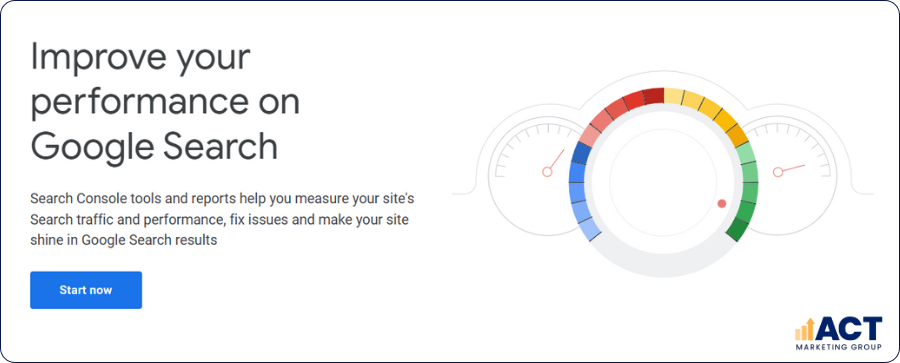How to find the right keywords for your blog is the first step to ensuring your content reaches the right audience and drives meaningful search engine traffic. Choosing targeted keywords and using the best keyword research tools can help your blog rank higher in Google search results and attract potential customers looking for your expertise. This comprehensive guide will walk you through a proven, practical process for keyword research—without jargon or exaggeration—so you can build a strong SEO strategy for your website.
Get a Customized Marketing Strategy for Your Business
Schedule a free consultation to discuss how our digital marketing solutions can help you reach more customers.
How to Start Your Keyword Research
Getting started with keyword research doesn’t have to be complicated. Here’s a straightforward approach you can use:
Step 1: Know Your Audience
Think about who you want to reach with your blog. What questions do they have? What problems are they trying to solve? Understanding your target audience helps you come up with keyword ideas that match their needs and interests.
Step 2: Brainstorm Keyword Ideas
Start by listing topics your blog covers. For each topic, write down the words and phrases your audience might use to find information. This list forms the base of your keyword research.
Step 3: Use Keyword Research Tools
Enter your ideas into a keyword research tool like Google Keyword Planner or another free keyword research tool. These tools will show you monthly search volume, suggest other keywords, and help you see which terms have lower competition. Look for keywords that are relevant, have a good search volume, and aren’t too difficult to rank for.
Step 4: Build Your Keyword List
As you find new keywords, add them to a keyword list. Group similar keywords together to create topic clusters. This makes it easier to plan your content strategy and ensures you’re covering all the important search terms.
Creating Content with Your Keywords
Now that you have your keyword list, it’s time to create content. Use your chosen keywords naturally in your blog post titles, headings, and throughout your content. Don’t overuse them—just make sure they fit where it makes sense. This helps search engines understand your content and improves your chances of appearing in featured snippets or other SERP features.
Using Long Tail Keywords
Long tail keywords tend to be more specific and less competitive. They often attract readers who are closer to taking action, like making a purchase or signing up for your newsletter. Including long tail keywords in your content can help you reach a more targeted audience.
Why Is Keyword Research Important?
Keyword research is the foundation of any successful SEO content strategy. When you research keywords, you discover what people search for, the search terms they use, and how often those searches occur. Understanding search volume and keyword ideas helps you create content that answers real questions and meets the needs of your target audience. By focusing on relevant keywords, your blog posts are more likely to appear in search engine results, driving more traffic to your site.
Understanding Your Target Audience
Before you start using a keyword planner tool or any keyword research tool, it's essential to define your target audience. Knowing who you want to reach will help you find the right keywords and create content that speaks directly to their interests. Consider their location, preferences, and the specific keywords they might use when searching for your products or services.
Brainstorming Keyword Ideas
Start your keyword research by listing broad topics related to your blog. Think about the main themes you want to cover and the questions your audience might ask. For each topic, come up with keyword phrases and search terms that make sense for your site. This initial keyword list will serve as the foundation for deeper research.
Using Keyword Research Tools
To expand your keyword list and discover new keywords, use keyword research tools like Google Keyword Planner, Google Ads, and other free keyword research options. These tools provide data on search volumes, keyword ideas, and competition levels, helping you find the right balance between high-traffic and lower competition keywords.
Google Keyword Planner: Access through your Google Ads account to get monthly search volume, related keywords, and keyword suggestions tailored to your region.
Google Search Console: See which search terms are bringing visitors to your website and identify opportunities for new keywords.
Google Analytics: Track the performance of your chosen keywords and see how they contribute to your search engine traffic.
Other Tools: Consider using the best keyword research tools available, such as SEMrush, Ahrefs, or Ubersuggest, to uncover more keyword ideas and analyse your competitors.

Common Mistakes in Keyword Research
Even experienced bloggers can make mistakes in their keyword research process. Being aware of these common mistakes can help you develop a more effective SEO strategy.
Focusing Only on High-Volume Keywords
While high-volume search terms might seem attractive, they're often highly competitive and difficult to rank for, especially for newer blogs. Balance your strategy with a mix of high-volume and long tail keywords for better results.
Ignoring Search Intent
Keywords with the same search volume can have vastly different values depending on the user's intent. Always consider what users are trying to accomplish when they search for a particular term and ensure your content addresses their needs.
Neglecting Competitor Research
Failing to analyze what keywords your competitors target can leave you missing valuable opportunities. Competitive analysis should be an integral part of your keyword research process.
Over-Optimizing Content
Overusing keywords in an attempt to manipulate rankings can harm your SEO efforts and create a poor user experience. Focus on creating valuable, well-written content that naturally incorporates your target keywords.
Not Adapting to Changes
Search trends and algorithms evolve constantly. Failing to regularly update your keyword research and adapt your strategy accordingly can result in declining performance over time.
To avoid missing out on the latest SEO strategies, read our article onLatest SEO Trends Australia.
Targeting Too Many Keywords Per Page
Trying to target more than one keyword per page without proper focus can dilute your SEO efforts. While you can target related keywords and variations, each page should have a clear primary focus.
Advanced Keyword Research Techniques
Leveraging Search Grader Tools
Search grader tools can help you analyze your current SEO performance and identify areas for improvement. These tools evaluate factors like keyword optimization, page load speed, and technical SEO elements that affect your ability to rank higher.
To avoid technical SEO issues that quietly hurt your Google rankings and user experience, read our article on Common Technical SEO Challenges.
Understanding SERP Features Impact
Different search results display various SERP features like featured snippets, image packs, and knowledge panels. Understanding these features helps you optimize your content for specific result types and capture more visibility in search results.
To avoid missing out on valuable search visibility, read our article on Google’s Special Boxes. It explains how to get your content featured in Google’s answer boxes, featured snippets, People Also Ask, and other rich results by using clear answers, structured data, and up-to-date content—helping your business stand out in search result.
Seasonal Keyword Planning
Many search terms have seasonal variations in search volume. Planning your content calendar around these fluctuations ensures you publish relevant content when people search for those topics most frequently.
Local SEO Integration
For businesses serving Australian markets, integrating local SEO elements with your keyword research helps you capture location-based searches and connect with nearby potential customers.
Building Long-Term Keyword
Creating Evergreen Content
Focus on creating content that remains relevant over time. Evergreen topics tend to maintain consistent search volumes and provide long-term value for your SEO strategy.
Developing Content Series
Creating content series around topic clusters allows you to target multiple related keywords while building comprehensive coverage of important topics for your audience.
Measuring ROI from Keyword Efforts
Track not just rankings and traffic, but also how your keyword-optimized content contributes to business goals like lead generation, sales, or brand awareness.
Analysing Search Volume and Competition
When reviewing your keyword list, pay attention to monthly search volume and competition. High search volume keywords can drive more traffic, but they often have more competition. Look for lower competition keywords and long tail keywords, which are longer, more specific keyword phrases that are easier to rank for and attract more targeted visitors.
Exploring Long Tail Keywords
Long tail keywords tend to have lower search volumes but higher conversion rates because they reflect specific search intent. For example, instead of targeting the broad term "SEO," you might use long tail keywords like "how to improve SEO for a small business blog." These targeted keywords help you reach people who are further along in their search journey and more likely to engage with your content.
Reviewing Search Engine Results
Before finalising your keyword list, search your chosen keyword phrases in Google and review the search engine results. Look for featured snippets, image packs, and other SERP features that appear for those terms. This research will show you what type of content is ranking and help you identify opportunities to create content that stands out.
Organising and Prioritising Your Keywords
Group your keywords into topic clusters based on related themes. This approach helps you create content that covers a range of related keywords and strengthens your site's authority on those topics. Prioritise keywords based on search volume, relevance, and competition, focusing on those that align with your content strategy and business goals.
Creating Content with the Right Keywords
When you create content, naturally incorporate your targeted keywords into the title, headings, first paragraph, and throughout the blog post. Avoid keyword stuffing and focus on providing valuable information that answers the search intent behind each keyword. Use more than one keyword where appropriate and include related keywords to broaden your reach.
Tracking Performance and Refining Your Strategy
After publishing your blog posts, use Google Analytics and Google Search Console to monitor how your keywords are performing. Track changes in search engine traffic, rankings, and engagement. Use this data to refine your SEO recommendations and adjust your content strategy as needed.
Have Questions?
We're Here to Help!
Common Mistakes to Avoid
Focusing only on high search volume keywords without considering competition or relevance.
Ignoring long tail keywords that could bring in more targeted traffic.
Neglecting to update your keyword list as search trends and audience needs change.
Overusing keywords in your content, which can hurt readability and SEO.
To avoid SEO mistakes that hurt your Google rankings—like wrong keywords, poor mobile optimisation, duplicate content, missing meta tags, and neglecting local SEO—read our article on How to Fix SEO Mistakes That Lower Your Rankings for practical steps to audit, fix, and future-proof your site
Conclusion
Finding the right keywords for your blog is a continuous process that involves research, analysis, and adaptation. By using keyword research tools, understanding your target audience, and focusing on relevant keywords, you can drive traffic, rank higher in search results, and connect with potential customers. Remember to review your keyword lists regularly, create content that addresses real search terms, and adjust your approach based on performance data.
Ready to Improve Your Blog's SEO?
We offer expert guidance and proven strategies to help you find the right keywords and build a content strategy that delivers results. Contact us today to learn how we can support your blog's growth and help you reach your business goals.

